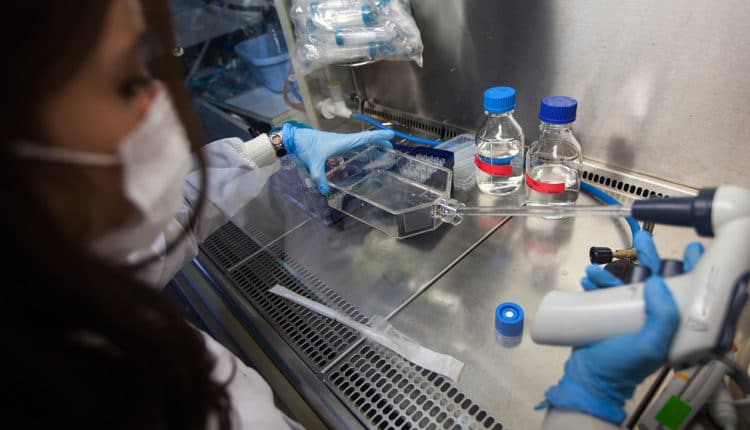 GEVEDE/ISTOCK/GETTY IMAGES PLUS
GEVEDE/ISTOCK/GETTY IMAGES PLUS
Researchers Find Potential Markers to Aid Early Diagnosis of Oral Cancer
Researchers from Case Western Reserve University School of Medicine, Cleveland Clinic, and University Hospitals Cleveland Medical Center have found that certain patterns in bacteria and fungi may play a role in the development of squamous cell carcinoma of the tongue.
 Researchers from Case Western Reserve University School of Medicine, Cleveland Clinic, and University Hospitals Cleveland Medical Center have found that certain patterns in bacteria and fungi may play a role in the development of squamous cell carcinoma of the tongue. Published in Oncotarget, the findings mean it may be possible to develop precautionary testing for patients at high risk for this cancer.
Researchers from Case Western Reserve University School of Medicine, Cleveland Clinic, and University Hospitals Cleveland Medical Center have found that certain patterns in bacteria and fungi may play a role in the development of squamous cell carcinoma of the tongue. Published in Oncotarget, the findings mean it may be possible to develop precautionary testing for patients at high risk for this cancer.
Reporting in the paper “Bacteriome and Mycobiome Associations in Oral Tongue Cancer,” the team notes that, compared with matched nontumor tissues, bacterial diversity and richness—as well as fungal richness—are significantly reduced in tumor tissue. Although the causes of squamous cell carcinoma are not fully known, genetic mutations, poor oral hygiene, and smoking are associated with this form of cancer. “If the relationships that we found are present in individuals who are not yet showing signs of lesions, we could begin treatment early, offering the possibility of better outcomes,” states co-senior author Mahmoud A. Ghannoum, PhD, a professor in the Department of Dermatology at Case Western Reserve University School of Medicine and University Hospitals Cleveland Medical Center.
In the study, researchers removed deoxyribonucleic acid from 39 paired tumor and adjacent normal tissues from patients with tongue cancer, and found Firmicutes to be the most abundant bacterial phylum. Its presence was significantly increased in tumor tissue compared with nontumor tissue (48% vs 40%). In addition, the abundance of 22 bacterial and seven fungal types was markedly different in the tumor and adjacent normal tissue, potentially indicating that further research could help identify markers to aid early detection of squamous cell carcinoma of the tongue.
Hygiene Connection E-Newsletter
February 2018

